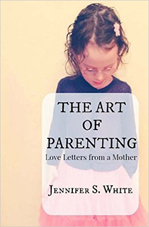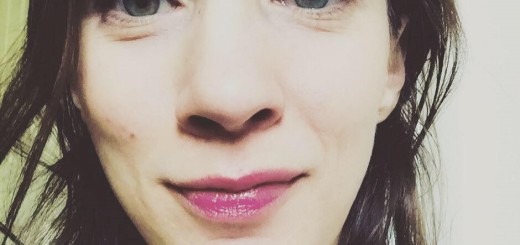The Caged Girls: A Billion Steps Back—How to Trust Enough to Fail.
Visit here for more of The Caged Girls.
Part Eight of The Caged Girls: A Billion Steps Back—How to Trust Enough to Fail (Chapters 25-28).
Chapter 25.
I decided to overcome my eating disorder once and for all because I wanted to get pregnant, and I had no desire to pass along my terribly unhealthy relationships with food and my body to a child.
This is not to shame, blame or guilt any mother who suffers; this is a reality of our world—living in cold, dark cages and not being able to get out, even when we’re raising children—even when we’re raising daughters.
Still, it wasn’t an entirely unselfish decision, my desire to be rid of my anorexia before expecting a baby.
For one, I longed to cherish, adore, welcome and be admirable of my growing body, not disgusted by it. I’ve known far too many women who were hung up on the pounds gained and where and how their bodies changed rather than focusing on the fact that we’re forming a new life!
And yet the first time around, when I was pregnant with my daughter, I pushed myself to exercise when I didn’t feel like it and I ate like a homegrown picture of perfection—although I did enjoy myself and my garden-produced food—but I didn’t let myself truly relax into my pregnancy.
I don’t regret it either—giving birth is the ultimate exercise. (My abs were sore with lactic acid build up for days afterwards.) I gave birth naturally—never having so much as a Tylenol during my pregnancy or her delivery—and when I see women letting themselves get horribly out of shape and eating like anything but the health warriors that their bodies are calling on them to be, I feel sad and I can’t help but wonder how that labor will go.
But we can’t see the future—complications happen, plain and simple—but what about the ones that we can prevent or help to ease along?
My body is a machine; my body is also my cozy, warm, quiet, safe home—my body is both of these things and I wanted to figure out how to treat it equally in these two regards.
Let me admit, this is not easy. We’re conditioned to think in one way or the other—our physical selves as round, supple, womanly places of worship or as rigid, muscle-rippled, health machines. So what I’m asking—and what I asked of myself—is why can’t we be both?
Why can’t we have our cake and eat it to?
So I set on a long, arduous road of keeping ice cream in the freezer but not eating it—or, more importantly, even wanting it—every evening.
I set out to exercise and keep my body in top shape, but not to the point of obsession or ruthlessness with myself. And this is what I learned: when we go to either of these extremes—shunning our bodies as health machines or accepting them in full as such—we are avoiding who we really are.
We’re avoiding our fear or our hurt or our life in a multitude of ways when we don’t allow ourselves to sit still and eat something for the pure sake of flavor; instead heading to the gym or for a walk outside for the second time that day (or third, or fourth, or fifth).
Simultaneously, we’re avoiding our primal need to be strong and to be able to endure life when we sit around and avoid exercise because sweating in a yoga class might mess up our hair or make us have to shower again.
In short, we can’t be recovered from an eating disorder until we learn to accept these extremes and then to couple them together into softer versions. I know this is a huge claim, but I’m standing fully on it—because it’s true.
Chapter 26.
I see so many women claiming recovery when they’ve basically lapsed and gone the other way.
For example, if bulimic, there’s a sense of pride in being able to portion food with extreme amounts of care—and control.
If anorexic, there’s a sense of intellectual fulfillment in watching the scale tip the other way and in eating things previously deemed “off limits.”
What I’ve also witnessed is how these behaviors then usually go to an unhealthy extreme too, causing a set-back or a full-on relapse.
Because part of the life of a recovering eating disordered person is taking five billion steps back for every step forward—and it’s more frustrating than it sounds, which is why many people just give up.
What I’m telling you is this: don’t give up.
The world is filled with people who want to jump and leap and soar forward without ever going backwards—and this is not success; this is not the path to success.
Every successful person out there will tell you that learning to accept failure and defeat is an absolute must if you plan on being a champion in whatever it is you seek. You have to invite failure, actually.
When I started keeping ice cream in the freezer (in—gasp!—quart-sized containers) I would eat so much that I would feel sick to my stomach, but I knew that I had to continue keeping it there, because if I took it away and vowed to never eat ice cream again—as I had cyclically done for years—then I would never learn how to have only a little; that I would never truly heal because much of healing is trust and much of self-love is self-trust.
We’re animals and we’re programmed for feast or famine. I see this even in my daughter.
If she knows that she can have something tomorrow, she’s more satisfied to have only a little bit today, but if I take it away and ban it, then she wants to hoard it when it’s around. (Not that our kids can always choose their diets and portions, but this type of behavior is learned early on.)
And by this type of behavior I mean, partially, learning what’s a “bad” food or a “good” one, rather than keeping foods as merely what they are and discovering that we simply feel better when we consume more of this and some of that in moderation.
But the anorexic and the bulimic don’t know moderation anymore—they’ve programmed themselves into only an extreme and they inhabit entirely that land of do’s and do not’s and of famished and of bursting.
And we’re using food control or lack of control to equal out our emotional selves—which is why we first need to take emotional attachments and judgments like “bad” and “good” away from food.
Chapter 27.
The first time I publicly acknowledged my eating disorder was in an article for elephant journal titled “How to Overcome an Eating Disorder in 6 Steps.”
In it I detailed and defined six critical steps towards recovery.
What interested me was the amount of positive feedback that I received and how many views it got from readers, but how little it was shared.
It interested me because people don’t want to “share” their eating disorder on Facebook. Nope, they want to share a cutesie photo of desert at a gourmet restaurant or a picture of themselves rocking out a fancy-looking yoga pose, which is definitely understandable. People don’t want to place the ugly and stigmatized parts of themselves in public, to be dissected and possibly discriminated against for it later.
And there’s nothing wrong with this—but we’ve become a culture of either over-sharing or over-sharing phoniness.
And it was after the publication of this particular piece that I decided what my writing genre would officially be: writing about—and then publishing—what people need and want to hear but are too afraid to outright admit and ask for.
Chapter 28.
How to Overcome an Eating Disorder in 6 Steps—yes, this bold title was meant to lure people in, but it’s bold because I believe in this process, not because I’m trying to become clickable in an already click-saturated online sphere.
And here’s what I subtitled that blog:
Or, rather, how I overcame mine.
And my six steps of recovery look like this:
1. See food as medicine. On your quest towards leaving your food-is-the-enemy mentality behind, see food as medicine. After all, food nourishes your body in a way that nothing else can; it is medicinal. As a foodie, I totally get that food is so much more than this; it nourishes so much more of us than just our bodies. Yet someone with a severe eating disorder is likely incapable, at least at first, of understanding this. Trying to get them to see food as love or anything spiritual or special is beyond the scope of reality. Hopefully this will come with time and healing, but focus first on not seeing food as something to fear.
2. Eat when you’re hungry, stop when you’re full. It’s not just the people with eating disorders who have stopped listening to their bodies. Our society as a whole does not prepare us for a life of eating when hungry and stopping when full. I’m not only talking about the clean plate club either. I’m talking about that one hour you have to eat lunch or that window of opportunity to give your kids breakfast before school. I’m talking about the no you can’t have that before dinner rule. Let me tell you, it took literally years to re-learn my body’s hunger queues, and at times I had to quite seriously fight my bosses to eat when I needed to (I won). This reconditioning takes patience and practice—and, trust me, it’s worth it.
3. Stop using the F-word! Fat. It’s become an ordinary part of our lexicon—and this sickens me. I don’t believe in saying never, but I will tell you that I will never call myself fat again—especially in front of my daughter. Please, even if you think it, stop saying it. Not only are you allowing the cycle to continue for your kids, you’re allowing it to continue for yourself. Ever heard the concept that thoughts become words and words become actions? There is something real in this. Sometimes we have to fake it to make it, so I’m begging you to stop using the f-word.
4. You always have the potential to become sick again. I was severely eating disordered for well over a decade, for definitely half of my life thus far. Yet I don’t see myself as eating disordered at all anymore. Ask anyone who knows and loves me; I love food and I eat extremely healthfully, yet I still eat what I want when I want (and I don’t over exercise anymore either). But you know what? Some of my absolute worst periods came after I had mentally declared myself eating disorder free. Then it dawned on me that I’m more like an alcoholic: I can be recovered, but I’ll always have an eating disorder. Maybe you don’t agree with this philosophy, and this might not be true for people that haven’t been severely ill with this disease, but I fully believe that seeing myself as having the potential for a relapse is what’s kept me well for the last decade. Sure, there’s some negativity behind this, but it’s the harsh reality for some.
5. Treat yourself like a beloved friend. In some cases this might not work, because some people don’t know how to treat other people with love and compassion. However, this step really helped me. I first read about this concept—talking to yourself like a dear friend—in a book during college. Would you say some of the things you say to yourself to someone you really loved, or would you treat them with more understanding and forgiveness? Being objective in this loving manner is a huge step towards the ultimate goal of health and self-love. (And this is true for everyone, not just people suffering from an eating disorder.) Remember that thoughts become words and words become actions—so start demanding that your inner voice speaks more gently.
6. Practice yoga. If you already practice yoga, great. If you don’t, start. Granted I had been practicing yoga for years—as a stretching routine after a run or weight lifting session. However, when I finally tuned into a daily yoga practice, I discovered so much health and ease and love for myself and for my body. Practicing yoga has helped me overcome a myriad of physical problems—from chronic low blood pressure to SI joint pain after childbirth—and you know what? I credit it for saving the real me that had to live inside a sick person. So thank you, yoga.
If these steps seem too easy to be true, it’s because they are. Just like anything else, you can be shown how to do something but it takes your own work and practice to be successful.
Recovering from an eating disorder is possible.
For many years, I defined myself as an eating disordered person first, who happened to have other qualities. Now it’s not even part of my vocabulary, much less my self-definition—and it took many years and many setbacks to achieve this.
So how do you overcome an eating disorder? One small step at a time.
Photo credits: Author’s own.











“Because part of the life of a recovering eating disordered person is taking five billion steps back for every step forward—and it’s more frustrating than it sounds, which is why many people just give up.”
Yes. And yes to the bit about relapse. It sucks, let me tell you. It feels like the world is caving in and there’s literally nothing to do but sit there and watch it suffocate you. The analogy to alcoholism, though I don’t know what that’s like, seems spot on to me. It’s always kind of ‘there.’
As always, beautifully done. xoxo